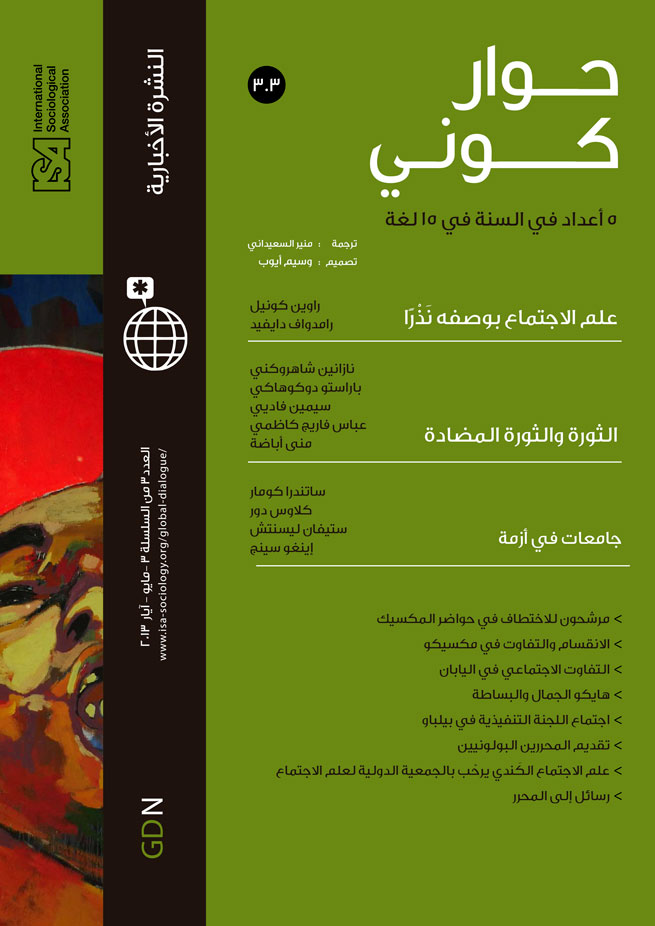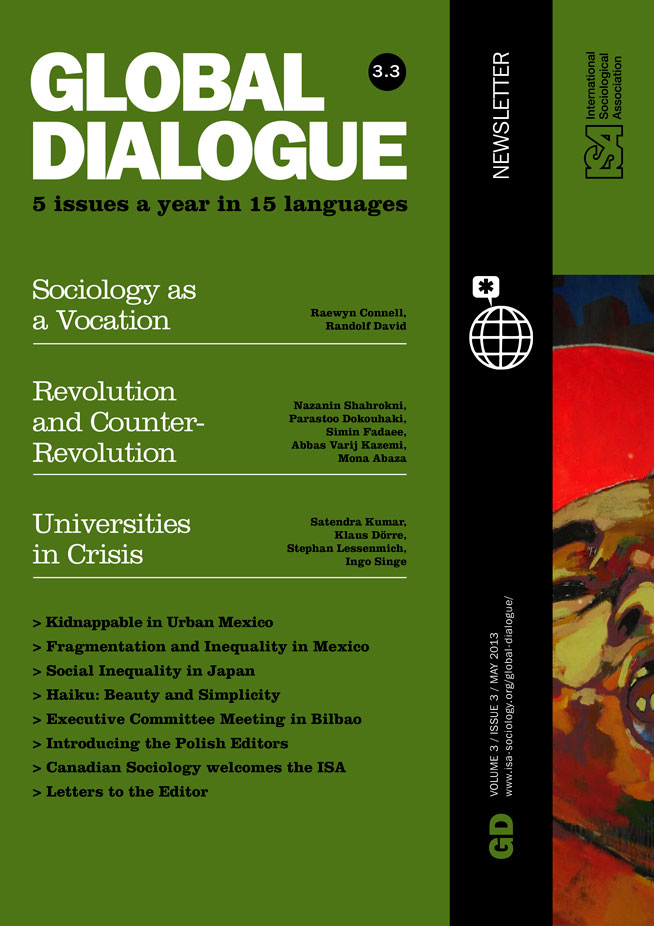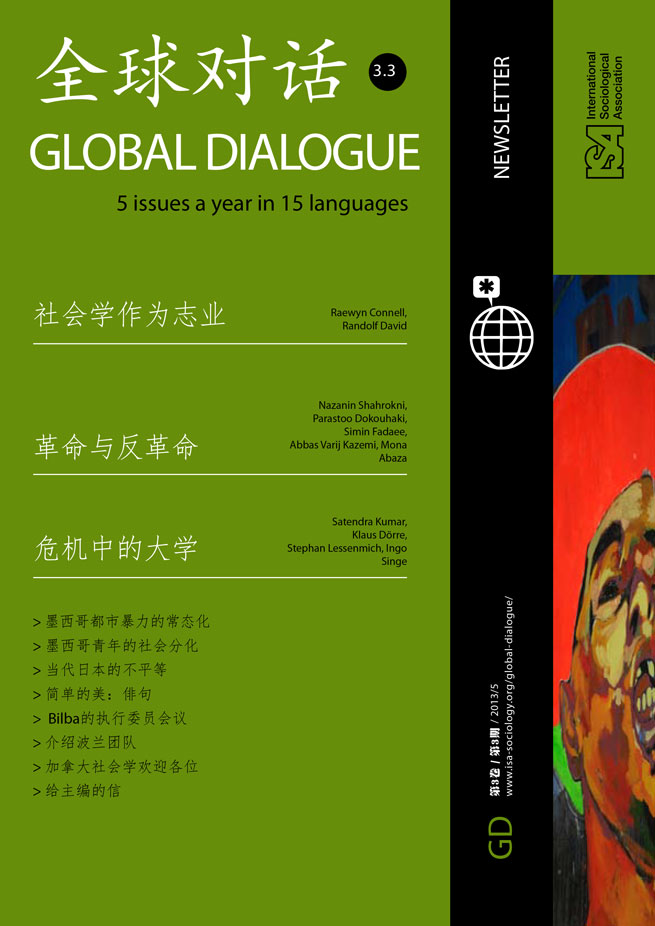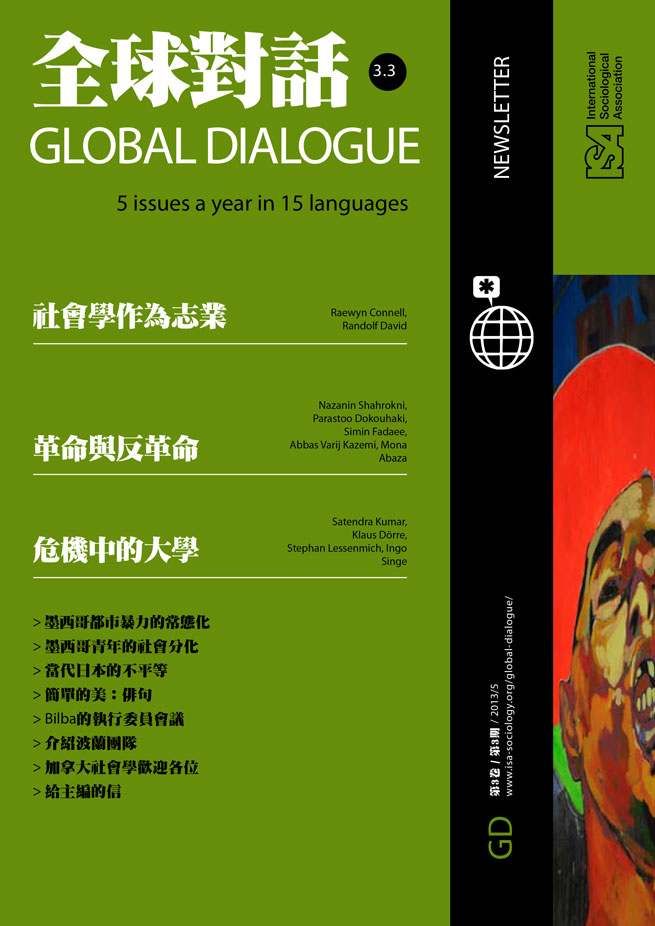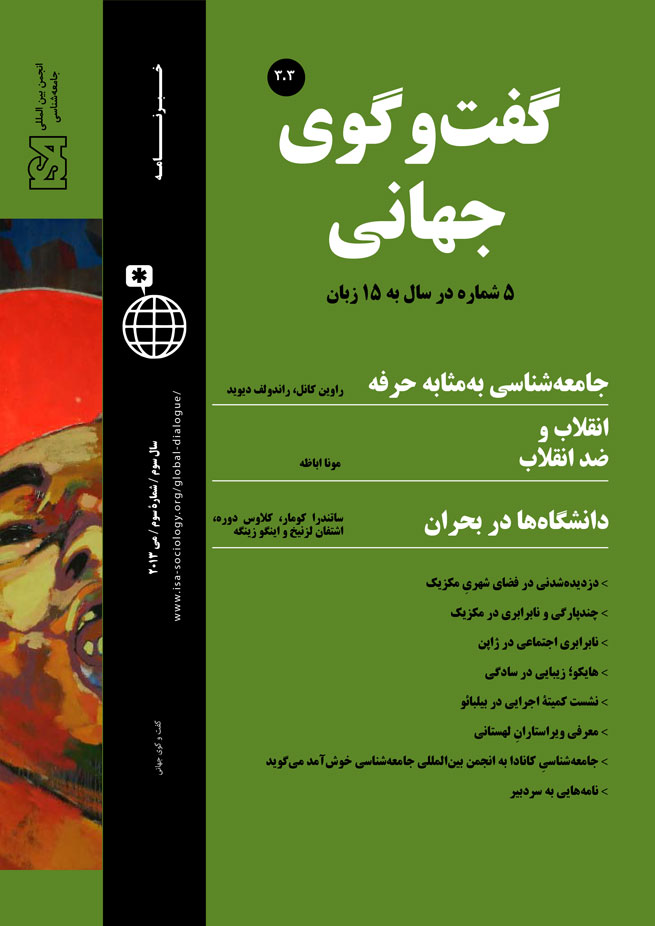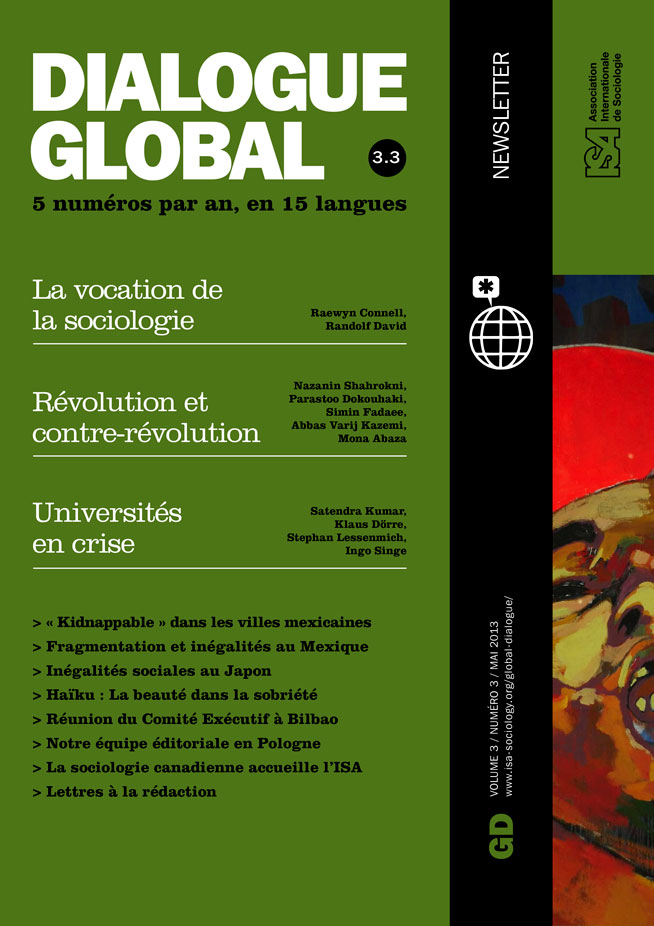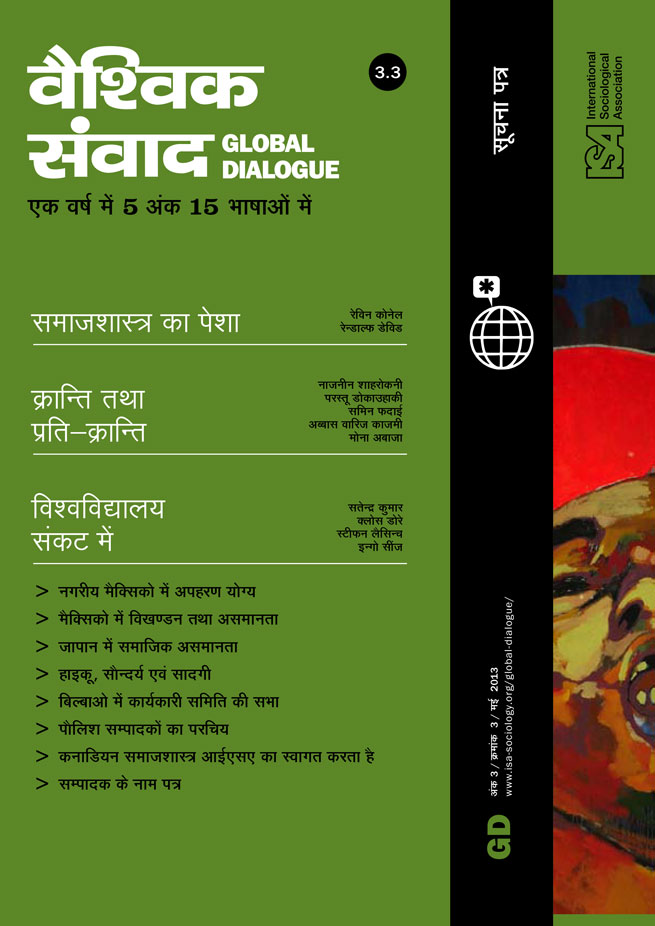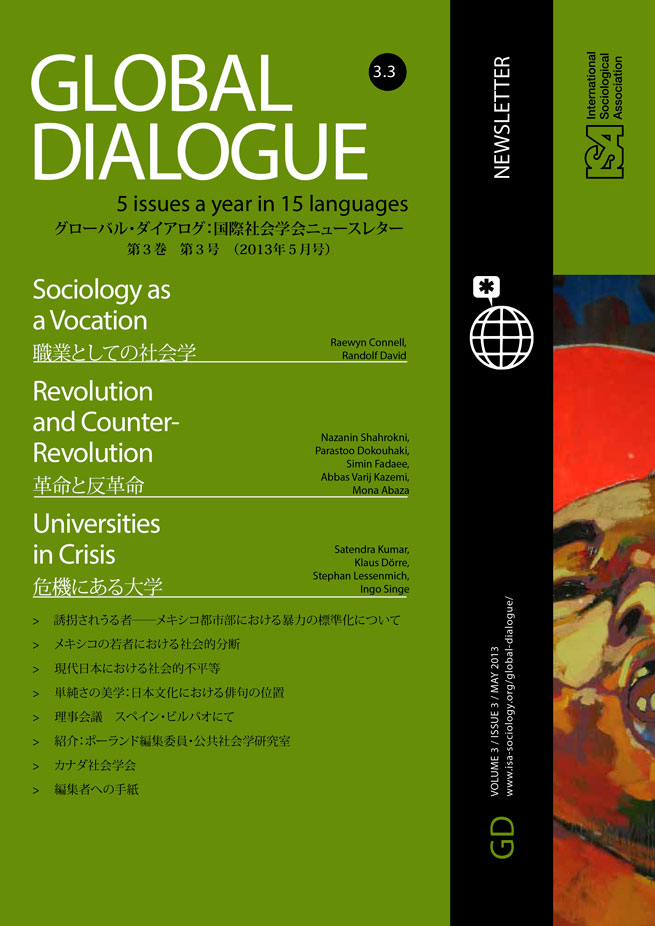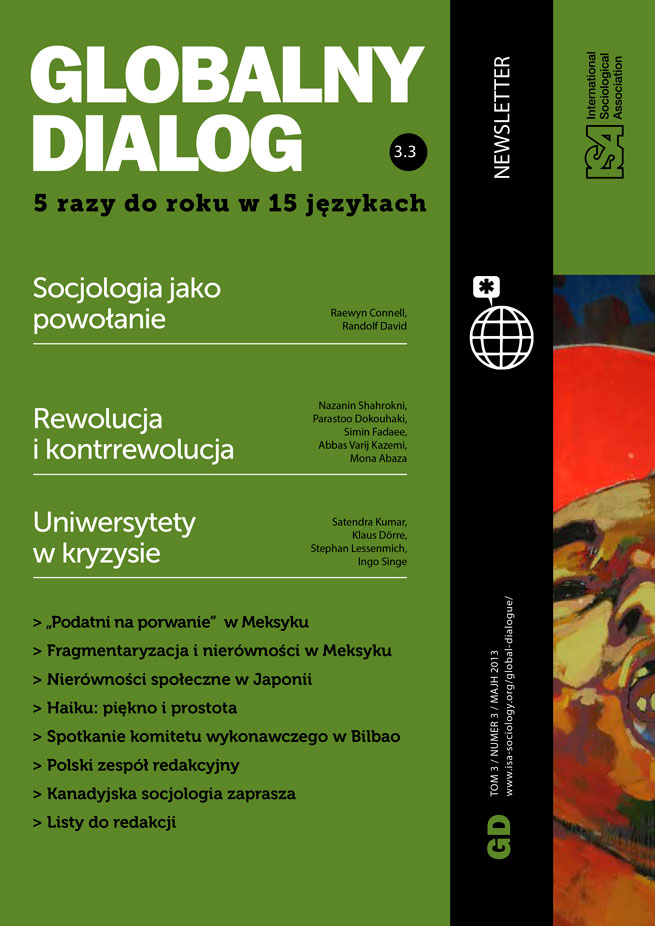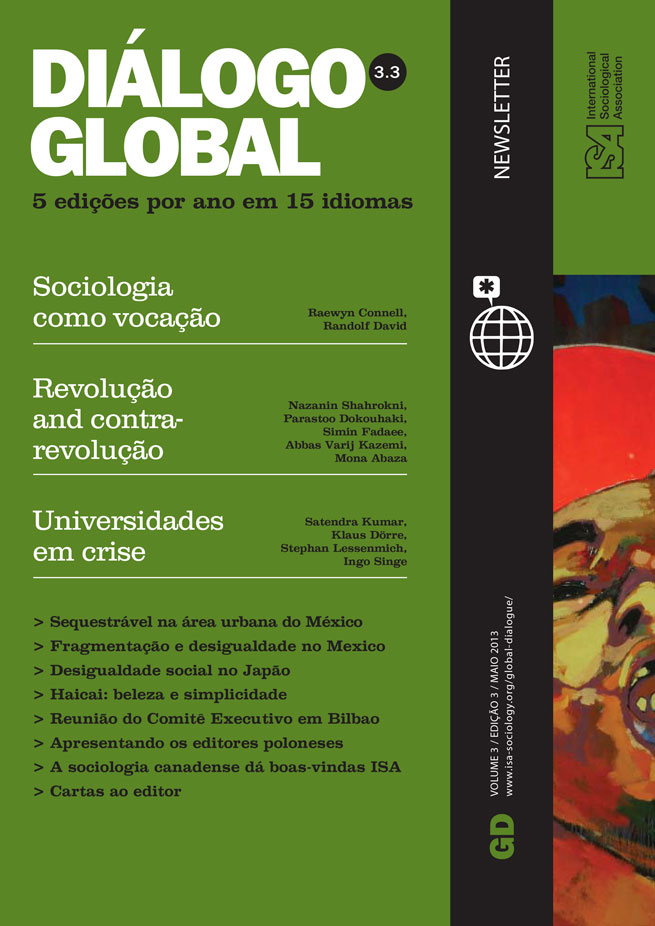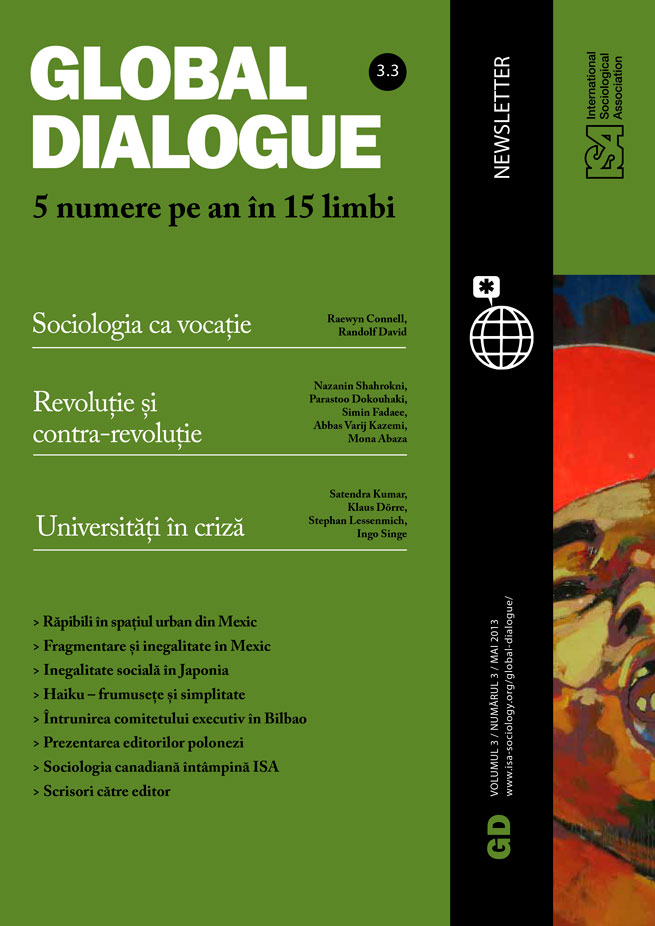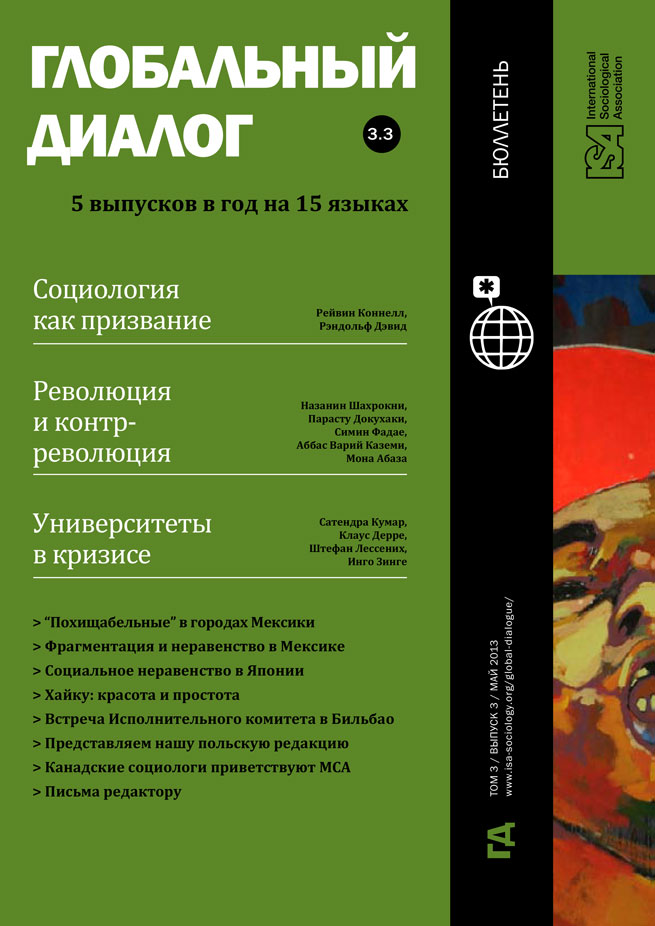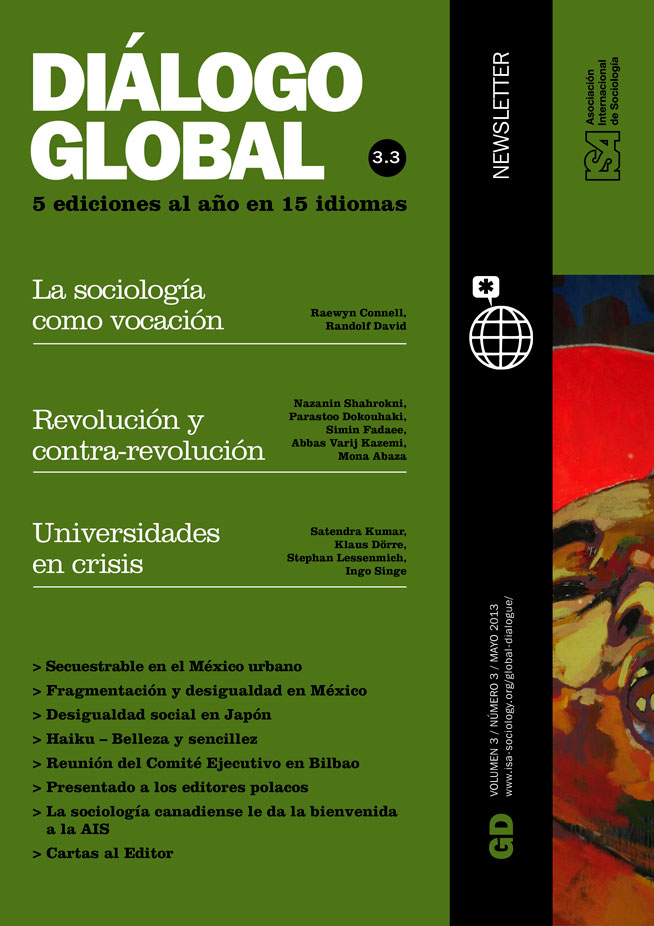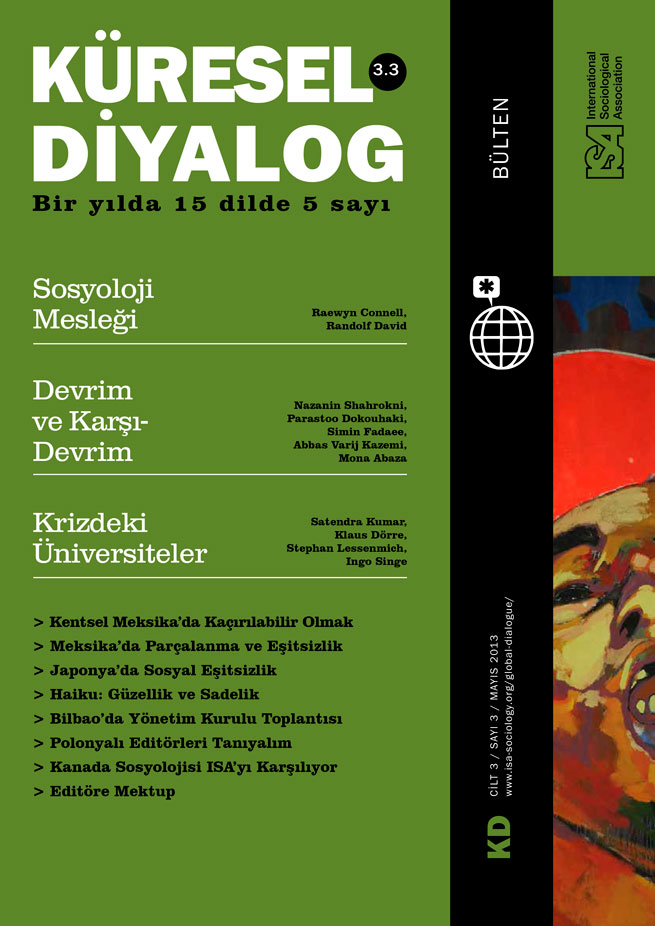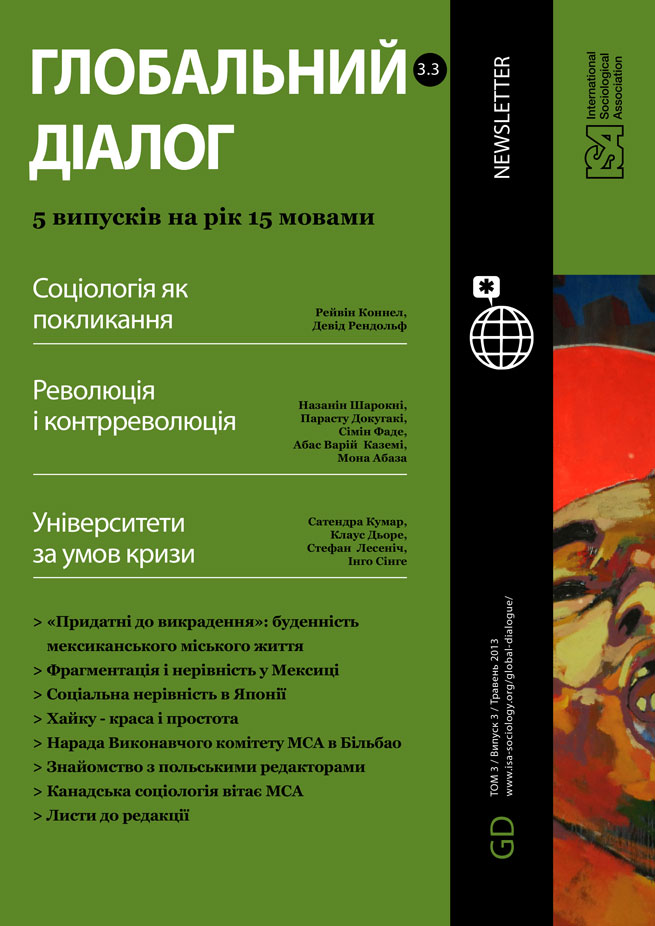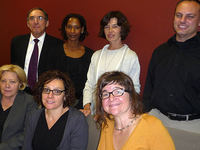Executive Committee 2013 Meeting in Bilbao
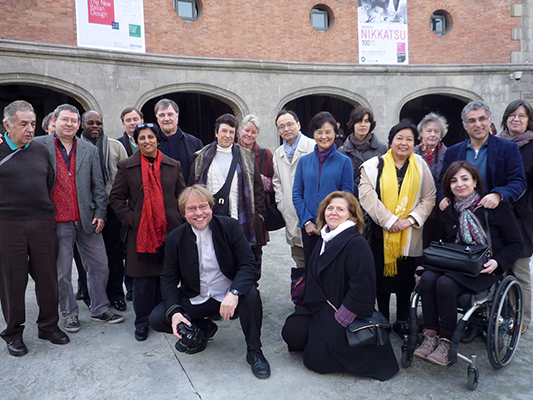
April 28, 2013
For its annual meeting the ISA Executive Committee (EC) assembled in Bilbao for five days at the University of the Basque Country, generously hosted by Professor Benjamín Tejerina, EC member, and his colleagues in the Department of Sociology. Two days of our meeting coincided with a fascinating International Conference on “Beyond the Crisis: Sociology Facing New Forms of Risk, Uncertainty and Precarity,” which drew on members of the Executive Committee and the external members of the Program Committee.
The five-day marathon began with separate meetings of the Program Committee for the Yokohama Congress in 2014, chaired by VP Raquel Sosa Elízaga, the Publications Committee, chaired by VP Jennifer Platt, the Finance and Membership Committee, chaired by VP Robert Van Krieken, the Research Coordinating Committee, chaired by VP Margaret Abraham, and the National Association Liaison Committee (NALC), chaired by VP Tina Uys. Summaries of their reports can be found below.
The Executive Committee met as a whole for two days at the end of the week. It has been a good year with a successful PhD Lab in Taipei, and an exciting ISA Forum in Buenos Aires, generating momentum for the 2014 Congress in Yokohama. I reported on trips to different continents and the progress made during the year with regard to ISA’s Digital Worlds (Global Dialogue, Universities in Crisis, Public Sociology Live, Journeys through Sociology and the proposed Professional Development site).
The EC was pleased to confirm that Toronto will be the venue for the 2018 Congress. One of our most urgent tasks was to decide where to hold the 2016 ISA World Congress. We had three excellent bids from Budapest, Copenhagen, and Vienna. We short-listed two – Budapest and Vienna – and will make a final decision pending site visits to both.
Among the other decisions we took:
- Adopted a proposal to restructure the ISA that would draw more on the EC for members of the program committee. This committee would be chaired by the President, thereby making redundant the position of Vice-President for Program. This proposal now goes to the Assembly of Councils for an electronic ballot.
- Established the conditions under which the ISA could make public statements defending sociologists facing human rights abuses.
- Developed an ISA policy on disability access for our major meetings.
- Established a committee to seek external funds for ISA projects.
- Created a new ISA Award for Excellence in Research and Practice.
Margaret Abraham, Vice-President for Research
The Research Coordinating Committee (RCC) had a productive meeting in Bilbao. I reported on the success of the Second ISA Forum of Sociology held in Buenos Aires (July 31-August 4, 2012) that brought together 3,592 registrants from 84 countries to participate in more than 650 sessions. The Social Justice and Democratization Space has been a great success and we have plans for its improvement.
The subcommittee on statute revisions reported on the research committees (RCs), working and thematic groups (WGs and TGs) that have reviewed and revised their statutes, and listed the RCs that have to complete this process before the forthcoming elections. The RCC reviewed the reports on the 2011 and 2012 grants allocation and approved the allocations for 2013. The Prize subcommittee reported on the RC37 (Sociology of Arts) award proposal that was approved. Thematic Group 05’s (Visual Sociology) request to be upgraded to a Working Group was approved. The proposal for a new Thematic Group on Sociology and Social Work was carefully reviewed but ultimately declined due to overlap with existing RCs.
The RCC discussed the preparations for the World Congress of Sociology in Yokohama, 2014, including:
- Confex’s progress to enhance the online system based on feedback provided at the Second ISA Forum and by RC program coordinators.
- The selection of the ten integrative proposals for the World Congress by the joint committee of the RCC and NALC.
- Improving the use of grants, by providing Congress grants to RC-TG-WG participants in the form of support for registration.
- The agenda for training newly elected RC/WG/TG officers and for the Research Council meeting.
I am also pleased to report that the ISA Finance Committee granted our request for additional funds (10,000€) to support the registration fee of Program Coordinators for Yokohama.
Raquel Sosa Elízaga, Vice-President for Program
Over the past three years, the Program Committee gathered on the occasion of the three annual meetings of the Executive Committee, to which most of its members belong: Michael Burawoy (ISA President), Margaret Abraham (Vice-President for Research), Tina Uys (Vice-President for National Associations), Elena Zdravomyslova, Benjamín Tejerina, Sari Hanafi, Chin Chun Yi, and myself, as Vice-President for Program. Koichi Hasegawa attended as the chair of the Local Organizing Committee. In addition, a group of distinguished scholars, who specialize in the study of inequality, accepted our invitation to participate as external members of our committee: Edgardo Lander, Göran Therborn, Kalpana Kannabiran, Markus Schulz, J. Esteban Castro, and Boaventura de Souza Santos (who was, unfortunately, unable to attend the meetings). The scholarship and experience of all the members of the committee guaranteed a high-quality scientific debate. Their collaborations, which we deeply appreciate, allowed us to prepare the document Facing Inequality, which was published on the website of the Association, and has served as the basis of our arguments on how to approach all the problems to be discussed in our plenaries. Their effort was also crucial to determine the structure and organization of the program, the number and profile of every plenary, which is now directed to contacting colleagues whose contributions are known worldwide. The result of this work will be presented in several volumes which will be published by our Association.
The committee also discussed at length the way the plenaries should contribute to the general organization and structure of our Congress. The great interest aroused by our theme allowed us to broaden our horizons with the contributions of our colleagues in Integrative, National Associations and Ad Hoc sessions, as well as to incorporate well-known specialists in the Authors Meet Critics sessions, the extraordinary sessions prepared by the Local Organizing Committee and the Presidential sessions, which for the first time will be integrated into the ten plenaries that were approved. The Yokohama Congress will take place a year before UNESCO’s term to fulfill the Millennium Development Goals. We truly hope that our own work will contribute as much as possible to a deeper understanding of inequality as well as to ways of overcoming it.
Jennifer Platt, Vice-President for Publications
Our publications are doing well, but there are some important new developments as we respond to changing situations. The first review issue of Current Sociology, produced in cooperation with Sociopedia, appears later this year. That will contain updated reviews of various fields of work – for instance social conflict, disaster studies, health, and illness – so far available only in Sociopedia, opening them to a wider readership. For later issues, direct submission of papers reviewing further areas will be invited. The International Sociology Review of Books is to accept reviews of items, such as films, which are not strictly “books.” The eSymposium is only moving house; it will be located on our Social Justice and Democratization web site, http://sjdspace.sagepub.com/ with each issue only for ISA members until the next comes out. Vineeta Sinha, the current editor, becomes director of the web site, and her successor as editor will be Kelvin Low.
To help us respond to the developing needs of the international sociological community, an online survey will seek views about the contents of Current Sociology and International Sociology; the results will be discussed at the World Congress.
For our books, Sage Studies in International Sociology, there is a major innovation in pricing; hardback copies for libraries will still be produced, but a low-cost paperback edition will become available for ISA members and developing markets. The first in our series Key Texts in World Sociology are in preparation.
The pressures in some countries for “open access” to journal articles reporting work supported by some funding bodies have made it necessary to introduce new provisions. It has been agreed that authors whose work requires it, can pay a charge and make their paper immediately open to all, and those for whom the “green” option of openness only after a year is appropriate, can have that without charge.
Tina Uys, Vice-President for National Associations
The National Associations Liaison Committee had a productive 2012. The most important forthcoming event on the NALC’s calendar is the Meeting of the Council of National Associations to be held in Ankara, Turkey from 13-16 May 2013 on the campus of the Middle East Technical University (METU). The theme of the conference is “Sociology in Times of Turmoil: Comparative Approaches.” The conference will be attended by approximately 70 delegates of whom 40 represent national associations that are regular collective members of the ISA. We would like to express our appreciation to the Turkish Local Organizing Committee, chaired by Professor Doctor Ayse Saktanber, Chair of the Sociology department at METU, for all their hard work to ensure the success of the conference.
The application from the Saudi Society of Sociology and Social Work for regular collective membership was approved after discussion of their Statutes. Presently the ISA has 57 regular collective members. We also revisited the process for dealing with applications for regular collective membership received between annual EC meetings so that applicants will not have to wait for the outcome until the next NALC/EC Annual Meeting.
The Sociological Association of Kyrgyzstan, the Iberic Meeting of Sociology, the Bulgarian Sociological Association, and the Mozambique Sociological Association submitted reports on the regional conferences that they hosted with the support of an ISA grant. These were discussed and approved.
Grants to upgrade websites were awarded to the Argentinian Consejo de Profesionales en Sociología, the Argentinian, Australian, Croatian, German, and Iranian Sociological Associations. The Finnish Westermarck Society received a grant to organize a regional PhD workshop to be attended by doctoral students from the Nordic countries. Members of the NALC stressed the importance of demonstrating the regional nature of a workshop when applying for a grant.
Robert van Krieken, Vice-President for Finance and Membership
- Membership
The committee reviewed collective membership as well as individual membership, which at December 2012 was at an all-time high of 5,300.
The membership of Research Committees, Working Groups, and Thematic Groups was reviewed, noting four RCs in a medium- to high-risk situation of declining membership, and those RCs and TGs growing significantly: RC07 Futures Research, RC09 Social Transformations & Sociology of Development, RC13 Sociology of Leisure, RC19 Sociology of Poverty, Social Welfare & Social Policy, RC21 Regional & Urban Development, RC31 Sociology of Migration, RC32 Women in Society, TG03 Human Rights & Global Justice, TG04 Sociology of Risk & Uncertainty, and TG05 Visual Sociology.
Concerns were expressed about the increasing proportion of Life Members, and the committee referred the question to the Executive Committee for its consideration. A sub-committee of Ishwar Modi and Tom Dwyer reported on their analysis of the membership figures, and made a number of recommendations about improving membership, including establishing a sub-committee to monitor membership developments.
- Finances
The committee noted a slight decline in membership fees, royalties from publications, and interest income, as well as increases in expenditure on various aspects of the ISA’s operations, but also a significant increase in the Sage contribution.
A detailed Financial Statement for 2011-2012 will be posted on the ISA’s website.
Additional requests for funding were considered and either approved or referred to the EC for final decision, including the provision of additional support for grants for National Association delegates to Yokohama and also for Program Coordinators in Yokohama, as part of the World Congress budget.
Michael Burawoy, University of California, Berkeley, USA and ISA President

